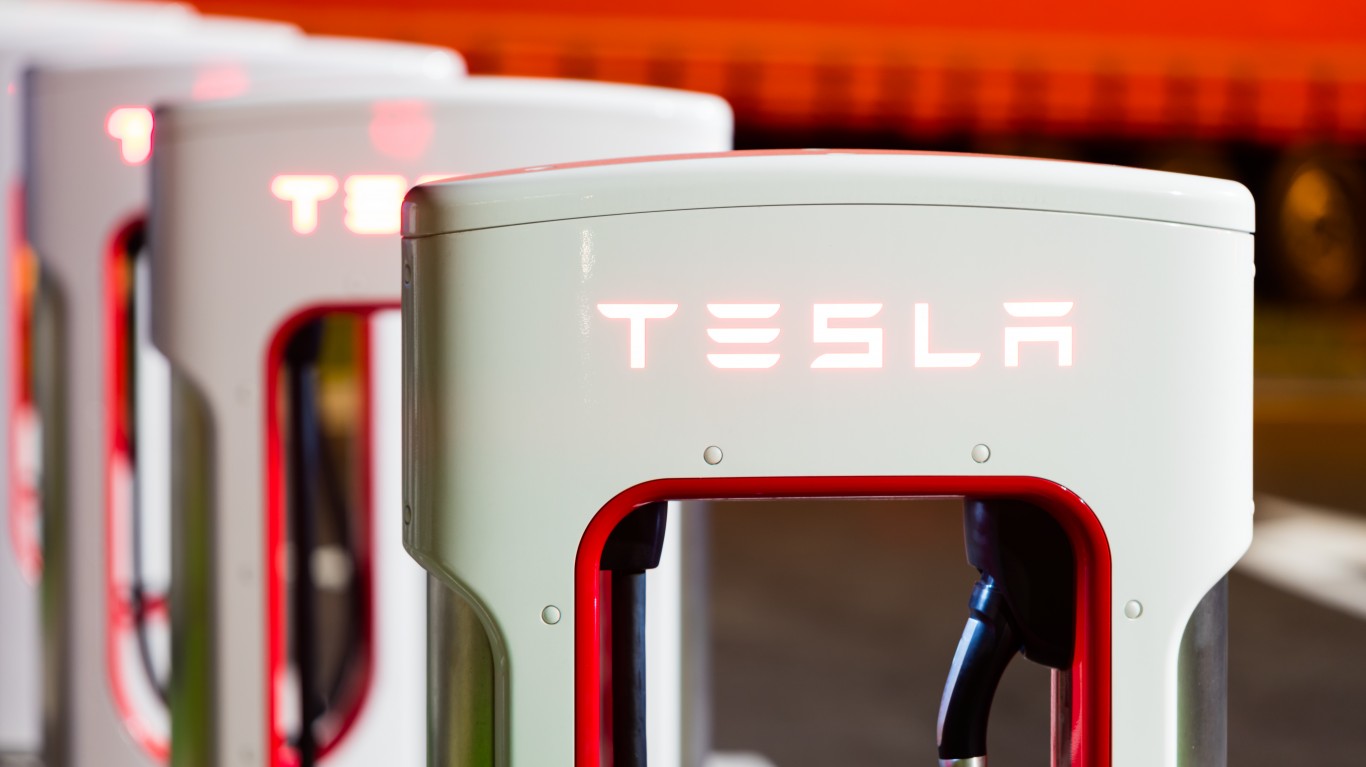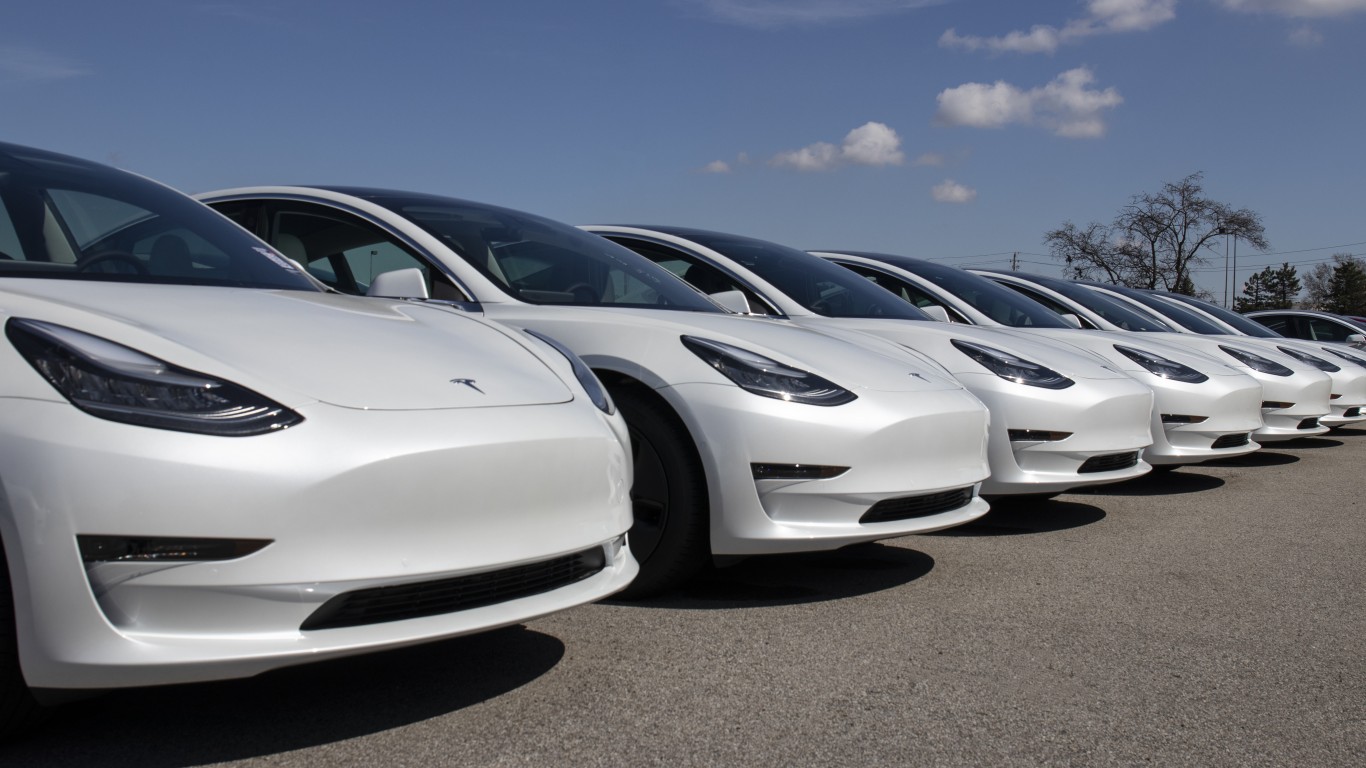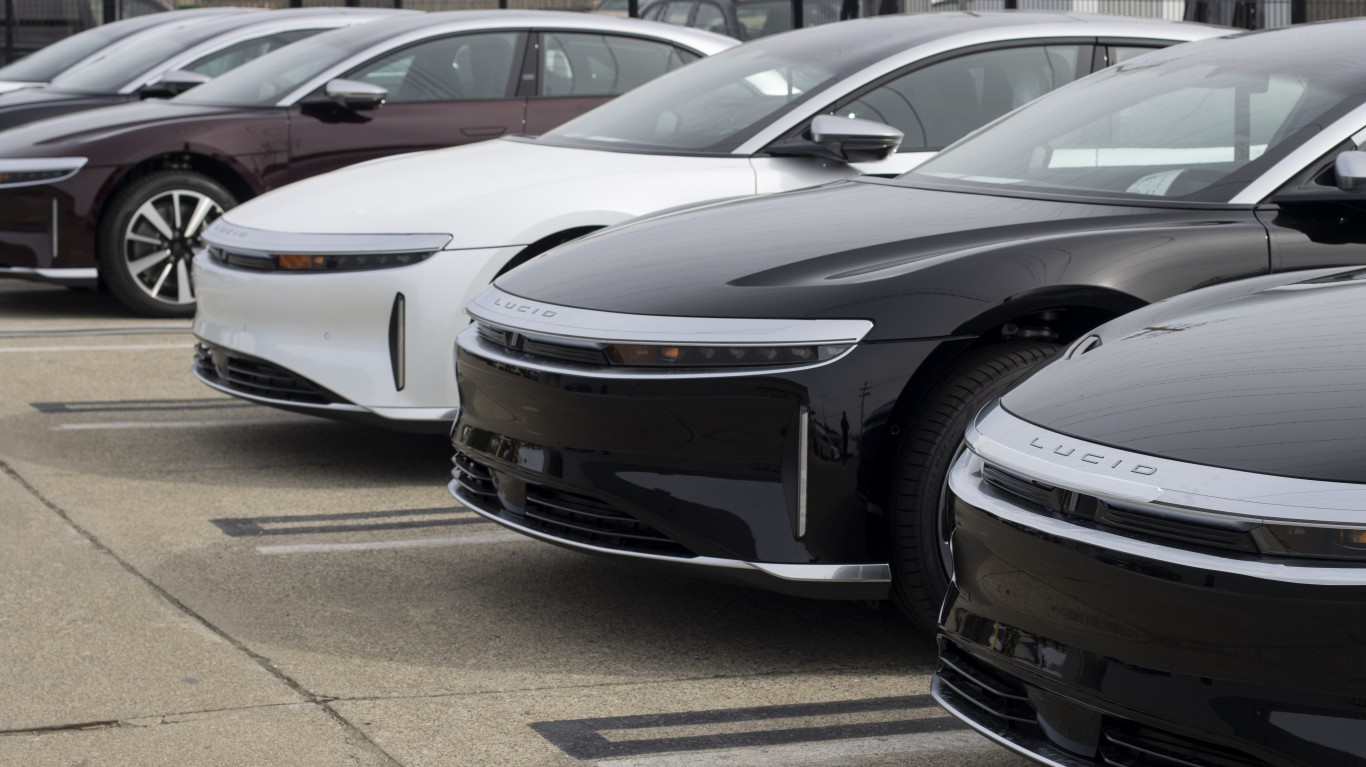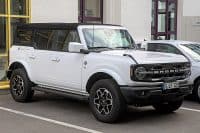
As Tesla Inc.’s (NASDAQ: TSLA) market cap rises relentlessly, the company is nearly as valuable as massive consumer products company Procter & Gamble Co. (NYSE: PG), which was founded in 1837. The stock price of P&G is up 8.9% over the past year, and its market capitalization is $306 billion. The Tesla market cap has risen 546% to $286 billion, and some analysts expect it to go much higher.
It would seem impossible that the two companies could have equal value. P&G had total revenue of $70 billion last year and is expected to do nearly as well this year, despite the COVID-19 pandemic. It had a net income of $5 billion.
[in-text-ad]
Tesla’s Small Revenue
A primary reason it is hard for many to believe Tesla’s market value should be so high is that the electric car company is comparatively very small. Tesla had revenue of $6.0 billion in the first quarter, which is 32% higher than in the same period a year ago. Of that, $5.1 billion was from automotive operations. Net income was a mere $16 million. If its revenue accelerates at a similar rate for the balance of the year, automotive revenue may reach $25 billion. However, the COVID-19 pandemic could push that number lower. A signal of the strain the virus has put on Tesla is that it dropped the price of its Model Y by $5,000. This is proof that demand for its electric cars has fallen.
By most standards, Tesla is not even a large car company, another challenge to the case for its high market value. Tesla built 102,672 cars in the first quarter, 33% more year over year. It delivered 88,496 cars. Perhaps Tesla’s deliveries may reach 400,000 this year, though again the pandemic could hamper that. Contrast the figure to Volkswagen, the world’s largest carmaker by unit sales, which reached 10.97 million last year.
Another very strong case against the current market cap of the electric car company is competition. Tesla competes with every large automaker in the world. Each either has electric cars or will soon. While the Tesla brand is a powerful one for consumers, it could be overwhelmed by vehicles from much larger manufacturers. Tesla may drop from its spot as the largest electric car company in the world.
BMW Challenge
BMW is a good example of competition from just one luxury car company. Its small i3 electric model carries a price of $44,450, which is near the bottom of the range of electric cars available in the United States. BMW’s i8 super-luxury model has a sticker price as high as $163,200. Purists would argue that each BMW model has a small, traditional engine to extend the range between charges. That distinction is likely lost on many buyers.
Tesla’s financial performance this year, and perhaps a new set of innovations such as autonomous driving features, may keep its market cap high. If results wobble, so will its stock price, however.
Thank you for reading! Have some feedback for us?
Contact the 24/7 Wall St. editorial team.



